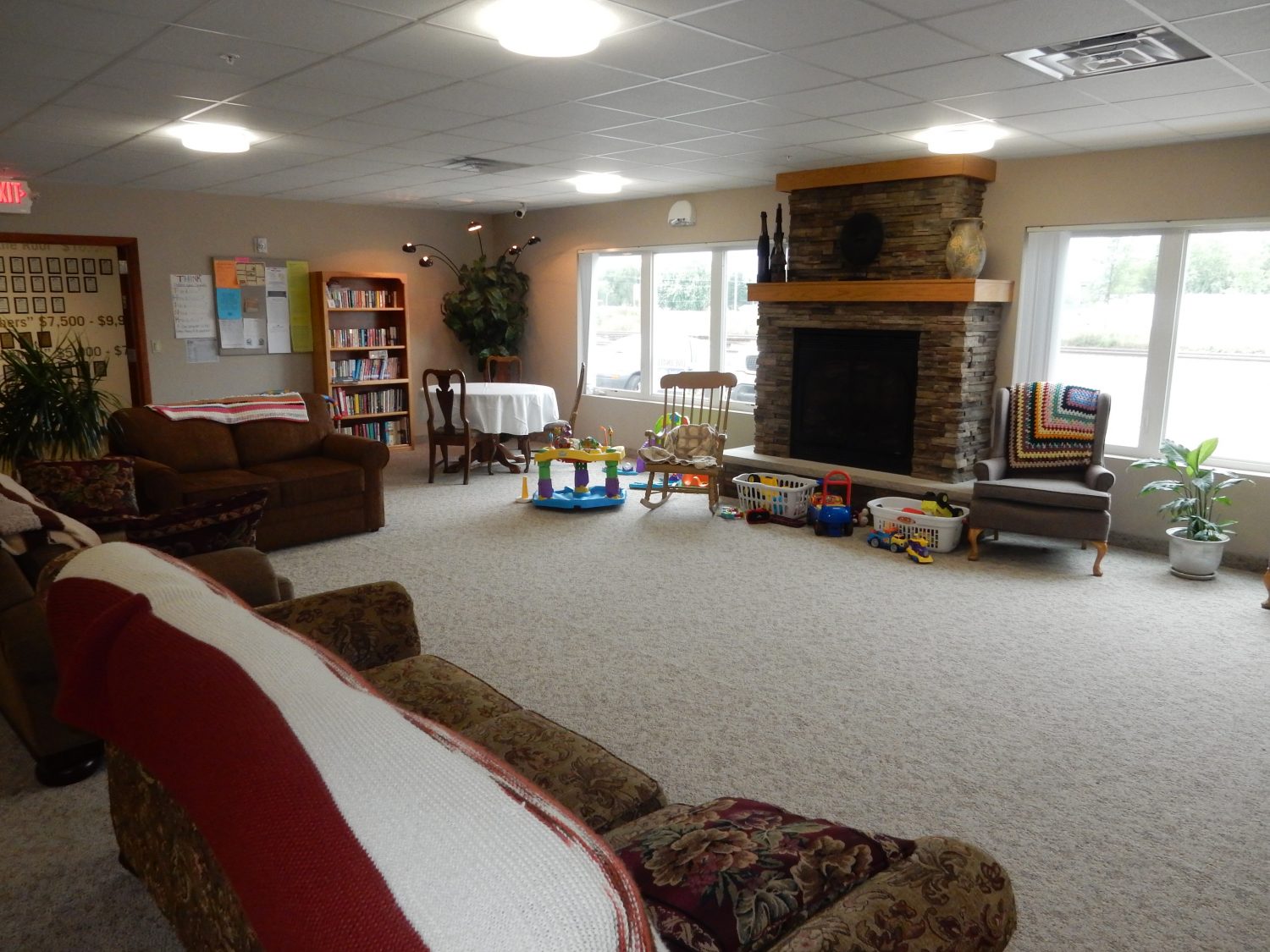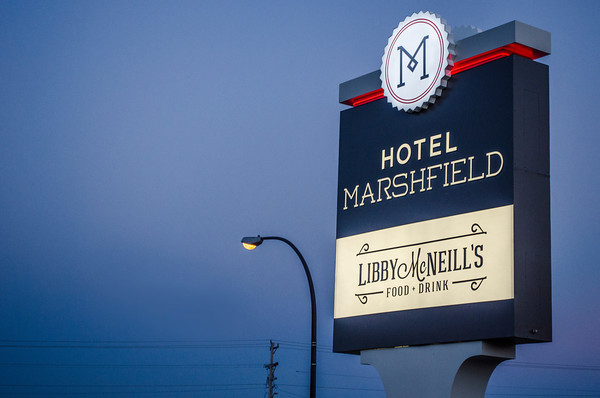Homeless shelter meets pressing need in Marshfield

By Adam Hocking
Editor
Marshfield — The very existence of the Frederic Ozanam Transitional Shelter presents an uncomfortable and perhaps surprising issue for Marshfield. Homelessness is a real concern here.
Open since the first week of April, the shelter is already consistently near full capacity. The shelter is designed for families and couples and can house up to 14 families and nearly 70 people at one time. Currently the shelter houses over 50 individuals.
Brittany Boyer, the shelter’s director, said that homelessness is growing in Marshfield but that it might not be obvious to those not directly involved with the issue.
“Marshfield is such a small community, and for the most part because we do have a large clinic, a large hospital, a lot of the residents in the community do have an above average income, and so when you’re growing up here I don’t think that you see a homeless population.
“They hide themselves very well. They double up with other families. They stay in their vehicles in parking lots. I mean it’s just not something that you see somebody sitting on the side of the road like you would in larger cities,” Boyer said.
Boyer previously worked at Salvation Army in Wausau. She knew there was a need in this area because Salvation Army had to turn people away from Marshfield every day.
“We knew it was going to be a need here. I knew that it was going to escalate quickly. I thought that it was going to take a little while before people knew that we were open, and we started getting this huge influx of residents, and that only took about a month,” Boyer said.
Boyer said that the criteria to get into the shelter is strict, and those that enter must stay on a program meant to transition them back to a successful life in society. Those that have a history of violence or sexual misconduct or have been banned from other area shelters are not admitted.
She added that only families or couples are admitted because many other shelters in Central Wisconsin will take single individuals. If a person comes to the shelter but does not meet the criteria for admittance, Boyer will assist them in finding alternative options.
Once residents are checked in to the shelter, they are given a four-month check out date with the hopes that they will be able to find income, housing, and a more stable support system within that time frame. The maximum amount of time a resident may stay in the shelter is eight months.
“Within that four months, we do weekly-to-monthly assessments about their progress here. They have to be doing job searches. They have to be attending life-skill classes. They have to meet with me on a weekly basis, and we go over budgeting and goals, résumé writing, that kind of thing, mock interviews.
“They have to show proof that they’re saving 80 percent of their income after they obtain income, and I request bank statements on that,” Boyer said.
She added that residents need to be looking for housing options during their stay. The program also offers help with relationship and parenting skills should the resident need assistance in those areas.
Ideally, the shelter is a path for residents to acquire a job, start saving money, and give their finances time to recover. The average day for a resident includes job searching, attending appointments with public assistance organizations, and a group activity in the evening such as watching a movie or playing board games. Residents also attend a weekly case management meeting with Boyer.
Boyer added that residents often form a bond and help each other develop a stronger support system than they had before entering shelter.
“It really is kind of that family feel. They kind of help each other out. If they cook a little extra for a meal, they’ll just say, ‘Okay, whoever wants it can have it,’” Boyer said. “While they’re here they do help one another out quite a bit.”
Boyer said that with the family population she works with, there are less mental health issues than there might otherwise be if the shelter housed single individuals. She said that mental health problems are more prevalent among those that are single and homeless.
“With single individuals that are experiencing homelessness, absolutely, (mental health issues are common). Families, not so much. Typically we see things like depression, anxiety, pretty minor. We don’t see a lot of schizophrenia or anything like that with a lot of families. That’s something that is kind of rare.
“A lot of families experience homelessness not because of mental illness but because they got a benefit decreased or someone in the family lost a job. It really centers around that income aspect a little bit more than mental health,” Boyer said.
Boyer added that the shelter sees a lot of single mothers and fathers with children who have a history of drug issues. She estimates that 50 percent of those that are single and have children who check into the shelter have drug issues or have struggled with drugs in the past.
Boyer said that the biggest challenge she faces on a daily basis is a lack of resources. Trying to find child care or transportation for residents is difficult. The shelter gets funding from United Way as well as federal and state money, but Boyer said it is still a challenge to get residents as many resources as they need.
Despite the challenges, Boyer truly enjoys her work.
“I think the best part about our job is, like, the little moments. When you transition someone out of here, that’s always great, but it’s like when they finish a résumé and it’s something that they never thought that they would be able to do, or we have one resident that completely reduced all of her debt so she’ll leave here completely out of debt and she didn’t think that she was ever going to accomplish that, it’s those little triumphs,” Boyer said. “It’s awesome.”
Items for donation can be dropped off at the shelter, which is located at 505 E. Depot St. in Marshfield. The items most needed by the shelter include personal hygiene products like diapers, wipes, child and infant toothbrushes, and toilet paper. Food items and office supplies are also welcomed and needed. For monetary donations checks can be made out to Frederic Ozanam Transitional Shelter and be mailed to 505 E. Depot St.
Volunteers are also in need, and those interested should call Brittany Boyer at (715) 384-6555 or email her at [email protected].
(Photo gallery from inside the shelter here)
Leave a reply
You must be logged in to post a comment.






